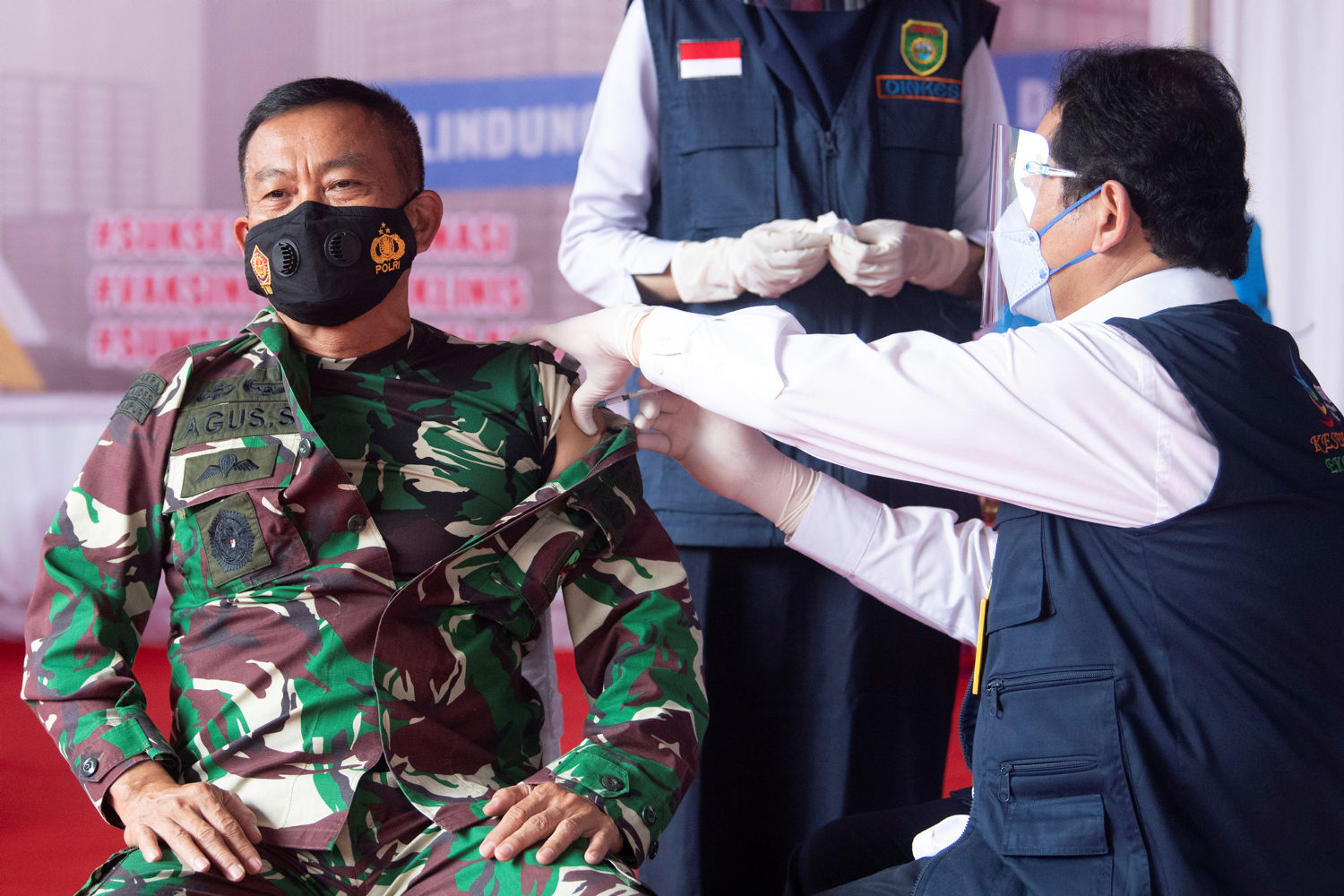(ATF) China’s Asian allies have rallied around its Covid-19 vaccines despite increasing doubts over their safety, efficacy and even price.
Its two leading manufacturers, Sinopharm and Sinovac Biotech, have signed deals with more than a dozen countries including the Philippines, Thailand, Malaysia and Indonesia, as well as many buyers outside the region, such as Bahrain, the United Arab Emirates, Egypt and Hungary.
Yet doubts surround the Chinese vaccines. Neither Sinopharm nor Sinovac have published full sets of trial data, leaving most scientists unable to make comparisons with rivals.
In the Philippines, President Rodrigo Duterte has come under fire over his government’s supply deals involving CoronaVac, the vaccine developed by China’s Sinovac Biotech.
He said there have been no deaths reported so far in relation to the Chinese vaccine, in contrast to Pfizer’s product, which has been linked to 13 deaths in Norway. Duterte said on Monday he would not stop Filipinos from getting the Pfizer/BioNTech vaccine, despite reports deaths among frail, elderly Norwegians after being inoculated.
However, CoronaVac has also been plagued by doubts about its reliability, especially after Brazilian researchers announced last week that the vaccine’s overall efficacy was 50.4% – one of the lowest rates for any vaccine – based on results from more than 9,000 volunteers. The Chinese Pharma had previously released rates in the 60-75% range, based on trials in China, Indonesia and the United Arab Emirates. Turkey reported 91% efficacy.
The Chinese company said on Monday that a clinical trial in Brazil showed its Covid-19 vaccine was almost 20 percentage points more effective in a small sub-group of patients who received their two doses longer apart than the original 14 day gap. The protection rate for 1,394 participants who received doses of either CoronaVac or placebo three weeks apart was nearly 70%, a Sinovac spokesman said.
UK regulators have said the AstraZeneca vaccine is more effective when there is a longer gap between doses than initially envisaged. Britain has also decided to allow a longer gap between doses of a COVID-19 vaccine from Pfizer and BioNTech , even though the companies say they only have efficacy data for a shorter period between shots.
AFFORDABILITY QUESTIONED
Cost is another issue for Beijing. China has touted the affordability of its vaccines but Duterte was forced to deny media reports that CoronaVac cost 3,600 pesos per shot, making it the second-most expensive jab after the US-made Moderna product. The Philippine leader said he was forbidden to reveal the cost because of a confidentiality agreement but described it as “closer” to the 600 pesos per shot charged by AstraZeneca.
On Monday, Pakistan, another close ally of China, approved the Sinopharm COV-19 vaccine for emergency use, two days after AstraZeneca’s vaccine developed with the University of Oxford received a similar authorisation. “The two Covid-19 vaccines have been granted EUA with certain conditions,” a spokesman for the drugr egulator said.
He added that both vaccines have been evaluated for their safety and quality and the authorisation will be reviewed on quarterly basis for further data regarding safety, efficacy and quality, the spokesman said. However, Pakistan has yet to place an order to procure any vaccine.
Pakistan has also said it could receive “tens of millions” of vaccine doses under an agreement with China’s CanSino Biologics, although that vaccine has yet to complete clinical trials. Its Ad5-nCoV candidate is nearing completion of phase 3 clinical trials in Pakistan, with preliminary results expected in mid-February.
CAMBODIAN U-TURN
Meanwhile, Cambodian leader Hun Sen said last week China would provide a million doses of both its vaccines to be used for inoculating 500,000 people, reversing an earlier decision that Cambodia would only use vaccines recognised by the World Health Organization.
“Many countries are already using vaccines, including those of … Sinopharm and Sinovac, which are our necessities and we cannot wait any longer,” Hun Sen said in a voice message on Facebook. “This is necessary for national defence, to prevent the people from contracting this vicious pandemic.”
Meanwhile, Kazakhstan, which shares a border with China and Russia, this week opted for Moscow’s Sputnik V vaccine.
























